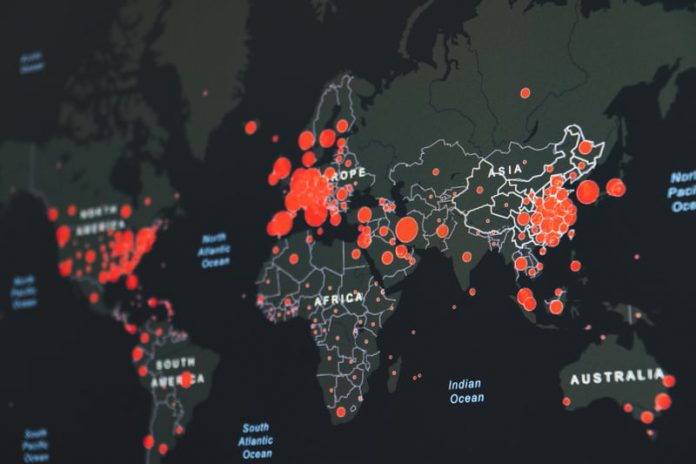Compliance is changing. In a world transformed by the pandemic, many companies are now conducting their compliance processes online. However, the continuing upheavals worldwide are altering the way compliance itself is conducted.
Being a company is the compliance space right now can be a mixture of exciting and challenging, with the curveballs of the pandemic and the escalating Russia-Ukraine crisis causing many new worries for companies looking to remain compliant.
One of the companies riding this wave is Ideagen. Founded in 2009, Ideagen was born as a vehicle for the consolidation of the regulatory document management industry in the UK. The company – founded by now retired chairman David Hornsby – spans 18 countries worldwide and has over 10,000 clients.
With this solid presence, the company firmly needs to have its focus on global events, with which regulatory compliance can often rear its head. According to Ben Dorks – CEO of Ideagen, with the rising threat from the Russia-Ukraine conflict, an increasing regulatory burden is looming.
He remarked, “Considering what is happening in Russia and Ukraine, there will no doubt be a spotlight on KYC and AML in a way that there probably never has been before. We can see an emerging focus on that area. When we look at it, individual training and competency remains very relevant to managing that increasing regulatory burden. At the end of the day, it doesn’t matter how many great systems you’ve got in place, people are still a huge part of the regulatory requirements of all organisations.”
Dorks stated he believes a risk-based approach to compliance is increasingly the norm, as more companies recognise that compliance is part of their day-to-day operational risk management, especially in the financial services sector. With growing volatility across the globe, it is becoming more important for companies to be prepared and ensure they remain compliant in a changing world.
He continued, “It’s more than just about ticking boxes when it comes to compliance. It is about incorporating it into the DNA of your organisation and delivering improvement and risk-based compliance is essential for that situational awareness. Over the last few years, we’ve had Brexit, Covid-19 and now the crisis in Ukraine, and you have to ask yourself – how do you manage risk? What’s next? That volatility and pace of change is changing the regulatory burden for many organisations.”
The pandemic has changed a lot regarding the way we live and work – especially in the area of work. The remote and hybrid working models have taken off since the beginning of the pandemic and look likely to stay in place. This has changed compliance in a big way in the workplace.
Dorks remarked, “There is no doubt that flexible and hybrid working is a big lasting effect of the pandemic and this has undoubtedly increased the risk exposure. People are now frequently unsupervised and office meeting have been far more formalised during Teams and Zoom calls and mistakes go unnoticed for longer. I think people are less conscious of the social and ethical norms of the office environment now and that can sometimes lead to higher risks about doing the right thing. People feel more kinship in an office environment, so when you’ve been stuck at home in a two-bedroom flat for 24 months then perhaps some of those social and ethical norms change – and I think that can be high risk.”
The Ideagen CEO suggested that more than anything else, the pandemic and the new working arrangements caused by it have had a lasting effect on how people have to manage compliance moving forward. Smarter organisations, he believes, have already woken up to the need for better operational risk management and compliance. However, a big issue is that many are still just catching up.
Does this mean that digital-led compliance is now baked in the system? While pre-pandemic the move to a digitally native stance by firms was already taking hold, the restrictions on in-person meetings means that many now see greater benefit in conducting their compliance business online. With the hybrid working model considered, Dorks stressed that a lack of a digital presence could be a huge worry for firms.
He said, “I would be really anxious if I was a CEO and we weren’t digitising the compliance business process. Paper-based/line of sight compliance just doesn’t work in the modern world. Digitalisation brings transformational benefits in how businesses operate in terms of effectiveness and productivity and if companies are now digitising and modernising their compliance process, they don’t have a hope of keeping pace with the increasing regulatory intensity of the modern world.”
Dorks went on to cite the recent sanctions and legislations that have been brought in regarding the Russia-Ukraine conflict. “On the first morning of the invasion we said that we will terminate all contracts with our Russian customers and suppliers, that then has huge implications across the business and you’ve got six to seven people running around managing the effects of that, ensuring we’re not just stopping what we were already doing. If you don’t modernise, you’ve not got a hope of being able to deal with the regulatory change intensity, especially in a world where we have no idea what will happen next.”
Compliance and its big challenges
In a world that is rapidly digitalising, challenges around compliance are likely to be inevitable. What are the industry’s biggest challenges? A key big fish for Dorks is the growing presence of ESG.
He said, “It’s (ESG) still very much nascent but it will become a huge compliance issue over the 3-4 years and will likely be mandatory by 2025 through multiple regulatory initiatives. It’s very much a moving target but one that companies will need to invest in today to really succeed for the future and be ready for 2025 – you’re not just going to be able to tick the box when it comes to ESG.”
Alongside the digitalisation is the ensuing chaos of recent years, with shock-factor events like Brexit, the Covid-19 pandemic and the Russia-Ukraine war driving global uncertainty among companies worldwide. Is this likely to abate? Dorks doesn’t think so.
He remarked, “I think there is going to be more global chaos if I’m honest. The result of that will be very rapid regulatory responses, as we have seen in Russia and the sanctions applied in the financial services industry by the EU, UK and the US. I think sometimes that can be overdone, although not in the case of Russia. However, you’ve still got to react to that new situation and that requires a significant investment in situational awareness.”
What does Dorks believe is the best way to deal with this global chaos? “Better operational and organisational risk management to enable you to react quicker and be more agile.”
Ideagen’s growth path
While the world is currently experiencing significant upheaval, Ideagen is going from strength to strength.
Dorks said, “The company has grown into the global regulatory and compliance player that it is today through a twin focus on organic growth and our continued own product development, as well as over 20 acquisitions.
“There is approximately 50% of the market that is still using Microsoft Excel, Word and SharePoint to manage regulation and compliance. There is about 20% of the market that is still using very siloed best-to-breed systems, while when you look at the other 30% you find there are still large swathes of the market that are still homegrown solutions that have grown organically over a period of time.”
This, Dorks suggests, provides a long runway of growth for Ideagen. He adder that coupled with the fact organisations now need a universal view on their regulatory and compliance within their business, there is a real spotlight being placed on regulation and compliance.
He continued, “Most of the organisations with which we work are working to an external regulator. They may have 10 or 15 systems supplying them that information and that creates huge risk. With the pace of change and the volatility in the world today, having a combined system with a combined user interface and user experience and managed workflows and processes enables you to start making much more informed decisions.”
Acquisitions and future plans
Dorks noted that Ideagen has had a busy last 12 months, undertaking a vast spree of acquisitions in the RegTech space.
Of the companies Ideagen had acquired, included were email management solution MailManager, SaaS-enabled governance provider CompliSpace, RegTech firm Audit Analytics, Ai XPRT, mobile app developer Mi-Co and health and safety compliance platform OpsBase.
The company has also become flush with new funding, after it secured £100m through a new committed credit facility of £75m, with a further uncommitted of up to £25m in May 2021.
What is next for Ideagen? Dorks details, “We are aiming to grow to be a £200m annual reccuring revenue firm by April 2025. We will do that to make sure of continued strong organic growth and further acquisitions.”
Copyright © 2022 FinTech Global











